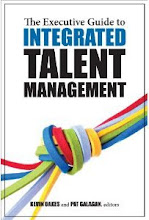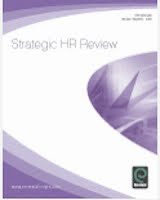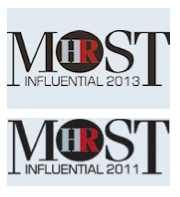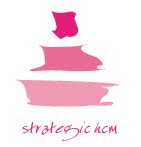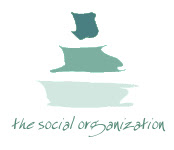We’ve got a good mix of speakers with some presenting on the role
of the HR function partnering with and having impact in a business, and
others focusing more on the job of the embedded HR profession – also
often called a business partner – as it’s the person in this job who is
mainly concerned with making a success of the broader role.
I cover both aspects of business partnering in the training sessions I
deliver for Symposium Training as well and one of the things I often
pick up from these courses is how much confusion still exists over the approach, the
role and the job, what they are, and the differences and commonalities
between them.
So how do you know if you’re working as a Business Partner?
1. Business partnering as an approach
To me there are two critical things which make up business partnering as an approach. These are firstly, that HR focuses on the
business (or other employing organisation) and secondly, that it focuses on partnering. This makes business partnering, despite some challenges, a
perfect name for what we're talking about.
The business piece is about focusing on the business/organisation –
understanding the business and making a significant supporting and
possibly leading contribution to the business. A lot of people would
suggest the approach is about a commercial focus too and it certainly does
need to include a financial and commercial understanding and clarity
about and alignment with HR’s contribution to the business’ financial
results.
However, I prefer to talk about a business focus as I think we do
need to see our organisations in holistic, rounded terms – paying
attention to the business operations and financials but without
forgetting the people who are behind these things. And despite the need
to be more business focussed, most business partners still deliver most
value by identifying opportunities to add and create value through the
people within a business and the way that these people are managed,
developed and enabled.
The partnering piece is about aligning the people and the rest of
the business – understanding what the business needs and ideally
contributing to these objectives based upon what people can do for the
business, and then aligning HR activities with these needs so that
everything HR does contributes to the success of the business.
Partnering is mainly about relationships and it’s therefore
relationship management which forms a major focus for my training
sessions with Symposium Training. By the way, the major challenge to
the term business parter is that partnering is not enough and that
something like business player would be a more suitable term.
I certainly agree with the need for more ambition in what
partnering can provide and that a partner needs to be on the field not
just supporting from the sidelines but I still think partnering is a
more accurate description of what the approach involves (come to one of the
training sessions for more explanation of that.)
All HR professionals and the whole HR function can and should act
as business partners in terms of this approach.
2. Business partnering as a role
I think this second question is a more difficult one to answer,
mainly because there are so many types and varieties of business partner
(a good thing! – see my post written for last year’s conference.)
However, in addition to demonstrating that you are working in a
business partnering approach (as defined above) I think there are three key
criteria, or enablers, which make it more likely that you are a true
business partner and not just a HR generalist with a business focus and a
partnering approach. These are:
i. You’re focusing on a business division rather than a location within a business.
This to me is the key distinguishing feature between an HR
generalist and a business partner. A generalist will typically be
focused on all of the divisions of a business at a particular location.
This doesn’t stop them from understanding the overall business, or
indeed the different business needs of each division, but it does mean
it’s harder to understand all of that. It also means that it’s more
difficult to act strategically to contribute to the overall business or a
particular division because they’ll need to act together with other HR
generalists in other locations to do this. The easier and potentially
bigger opportunities to focus on are the common needs within the area of
the business that they focus on which are the needs of the employees
working at their location. So this structural arrangement is going to
tend to pull them down, away from focusing on strategic business needs
and towards focusing on more people oriented, operational ones. That
doesn’t need to happen but it does make it more likely.
The difference if you are focused on a division is that you can
really, really get to understand your division’s business needs and
concentrate on aligning HR activities with these more specific needs.
You also probably cover multiple locations so it’s less likely that
you’ll get dragged down into operational issues at these different
locations. Again this structural arrangement doesn’t guarantee that you
will do this but it does make things easier for you to do so.
ii. You're also aligned with a divisional director.
Another benefit of a divisional focus is that you have one clear business client - the director of this division. You can really focus on them, their agenda, and them as a person, developing the practices they need and developing the type of relationship they also require.
iii. It’s not just that you are aligned to a director but that this director is aligned towards you.
Partnering
takes place in two directions. Even if you’re aligned with only one
director if that director is aligned with more than one business partner
they’re not going to see either or any of you in the same way. They
need to see you as the individual person they will turn to in order to
get strategic advice on HR.
3. Business partnering as a job
It also makes it easier to partner if you have centres
of excellence and/or a service centre and/or additional legs of the
business partnering ‘stool’ (which most often has three legs – business
partners, centres of excellence and a service centres – but can have
many more) so that you can focus more on the business and your
partnering rather than doing or developing HR activities.
HR then becomes the context for what you do but your professional
responsibilities revolve around the business and being a partner (ie:
ensuring your relationships with your business clients is effective and
that you are aligning everything the other legs of the HR model provide
with what your business needs). Note also that one of the most
interesting changes in partnering at the moment is the development of
the business partnering context to include other areas that are not
traditionally part of HR (eg: IT and facilities management – so that
you’re not just partnering into HR but into other functions as well).
Where you do have responsibilities for HR activities, and most HR
business partners do, it also helps if these are strategic, business
related activities such as organisation design and/or development,
rather than HR oriented and operational ones (eg: dealing with employee
relations cases).
If you’re supported by all three of these things, I’d suggest
it’s pretty definite that you’re acting in a business partnering job.
If you’re not doing any of them it doesn’t mean that you’re not a
business partner but you’ve got things stacked against you so it’s going
to be less likely that you’ll be successful.
Which ever of these apply – whether you’re operating in a business
partner’s job or just trying to act in the broader role, and if you’re
in the job how ever many of the enablers I’ve listed apply to you, I am
sure you will find topics of interest and of value, being discussed in
Symposium’s Successful Business Partnering Conference, so I hope that
I’ll see you there.
The above post has been updated from an original version posted on Symposium.co.uk.





